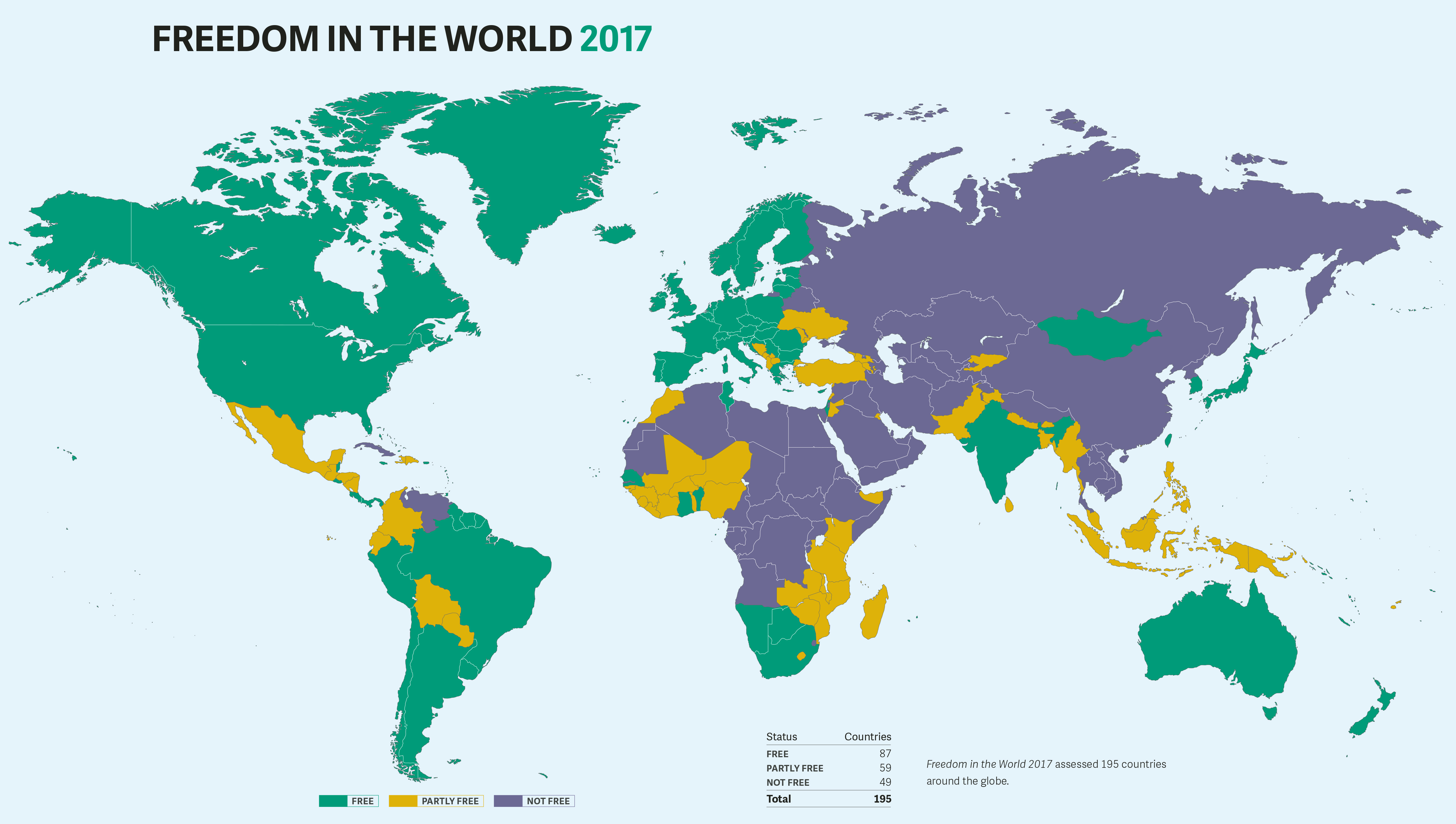
Freedom House covers issues of human rights, civil society, freedom of expression, internet freedom, the rule of law, elections, religious freedom, and LGBTI rights around the world. They recently published their Freedom On The Net 2017 report that discusses government efforts to manipulate information on social media.
According to the report, “Online content manipulation contributed to a seventh consecutive year of overall decline in internet freedom, along with a rise in disruptions to mobile internet service and increases in physical and technical attacks on human rights defenders and independent media.” The issues with information manipulation on social media in the United States pales in comparison to many other countries because the report points out that “Nearly half of the 65 countries assessed in Freedom on the Net 2017 experienced declines during the coverage period, while just 13 made gains, most of them minor. Less than one-quarter of users reside in countries where the internet is designated Free, meaning there are no major obstacles to access, onerous restrictions on content, or serious violations of user rights in the form of unchecked surveillance or unjust repercussions for legitimate speech.”
The United States is labeled as free in the image above and has this to say about internet freedom in the United States “The use of “fake news,” automated “bot” accounts, and other manipulation methods gained particular attention in the United States. While the country’s online environment remained generally free, it was troubled by a proliferation of fabricated news articles, divisive partisan vitriol, and aggressive harassment of many journalists, both during and after the presidential election campaign.”
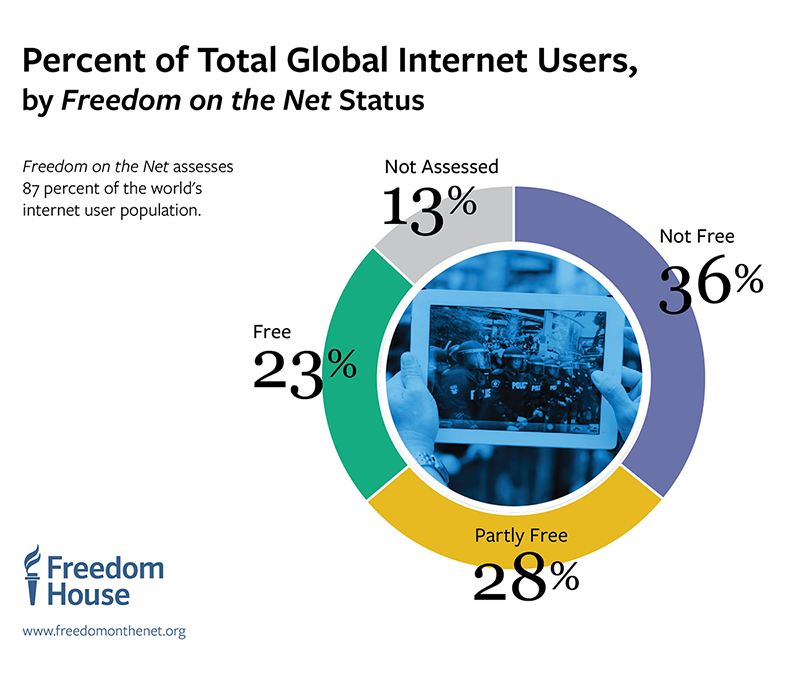
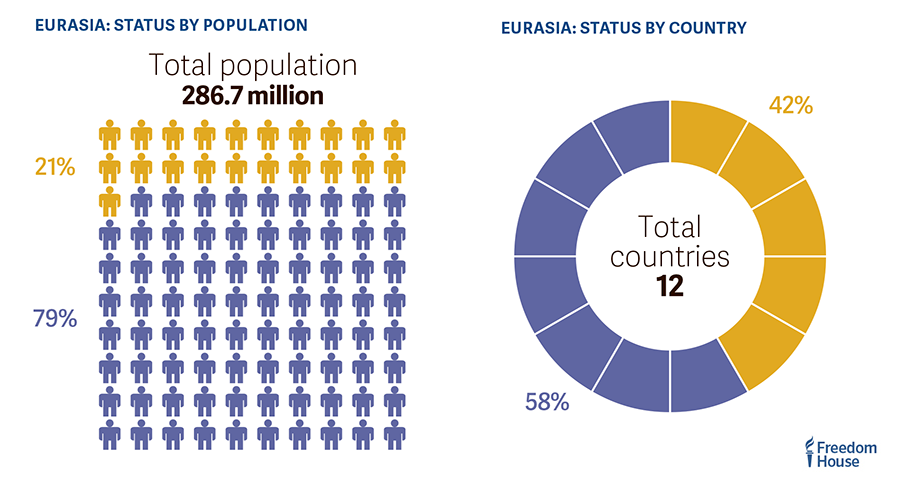
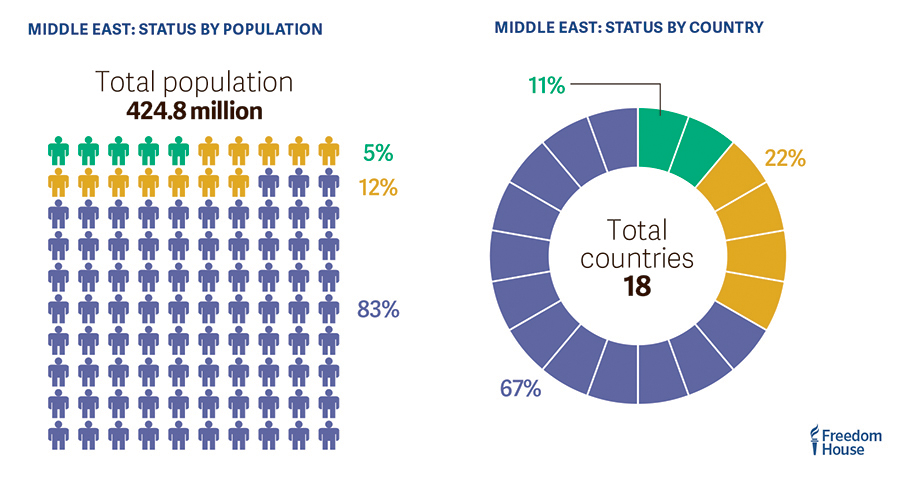
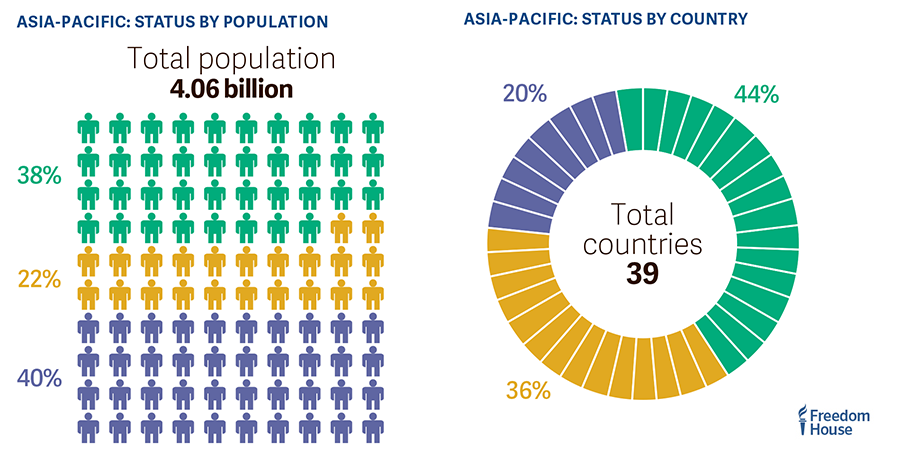
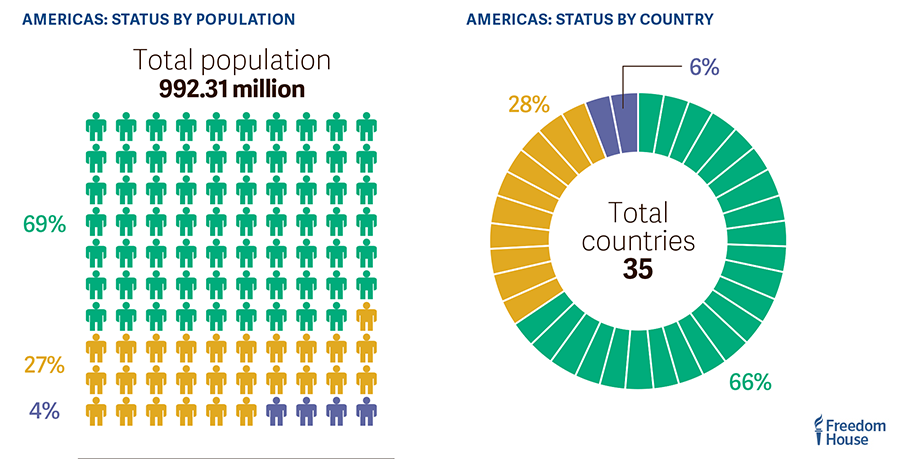
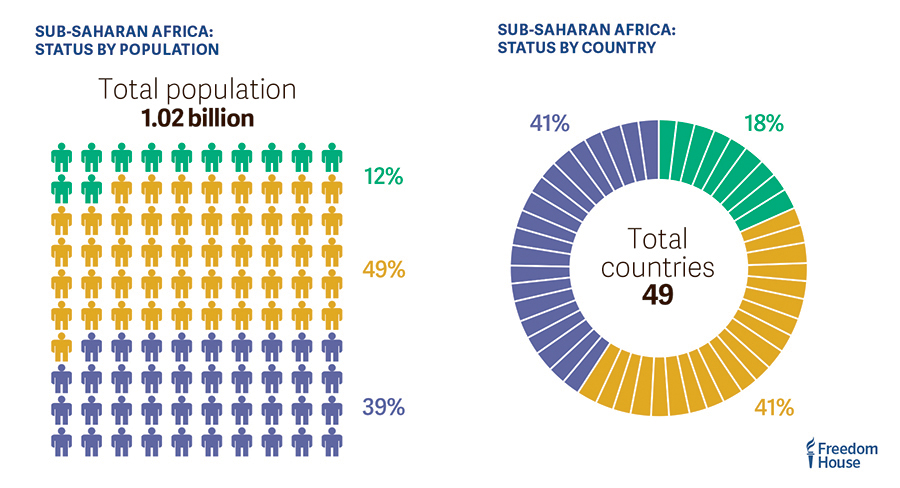
Out of 65 countries that were assessed, 32 have been declining since the middle of 2016 with the biggest declines happening in Turkey, Egypt, and the Ukraine. Ukraine’s decline is due largely because of Russia, “In Ukraine, the government blocked major Russian-owned platforms, including the country’s most widely used social network (VKontakte) and search engine (Yandex), on national security grounds. Meanwhile, violent reprisals for online activity escalated in the country, with one prominent online journalist killed in a car bombing.”
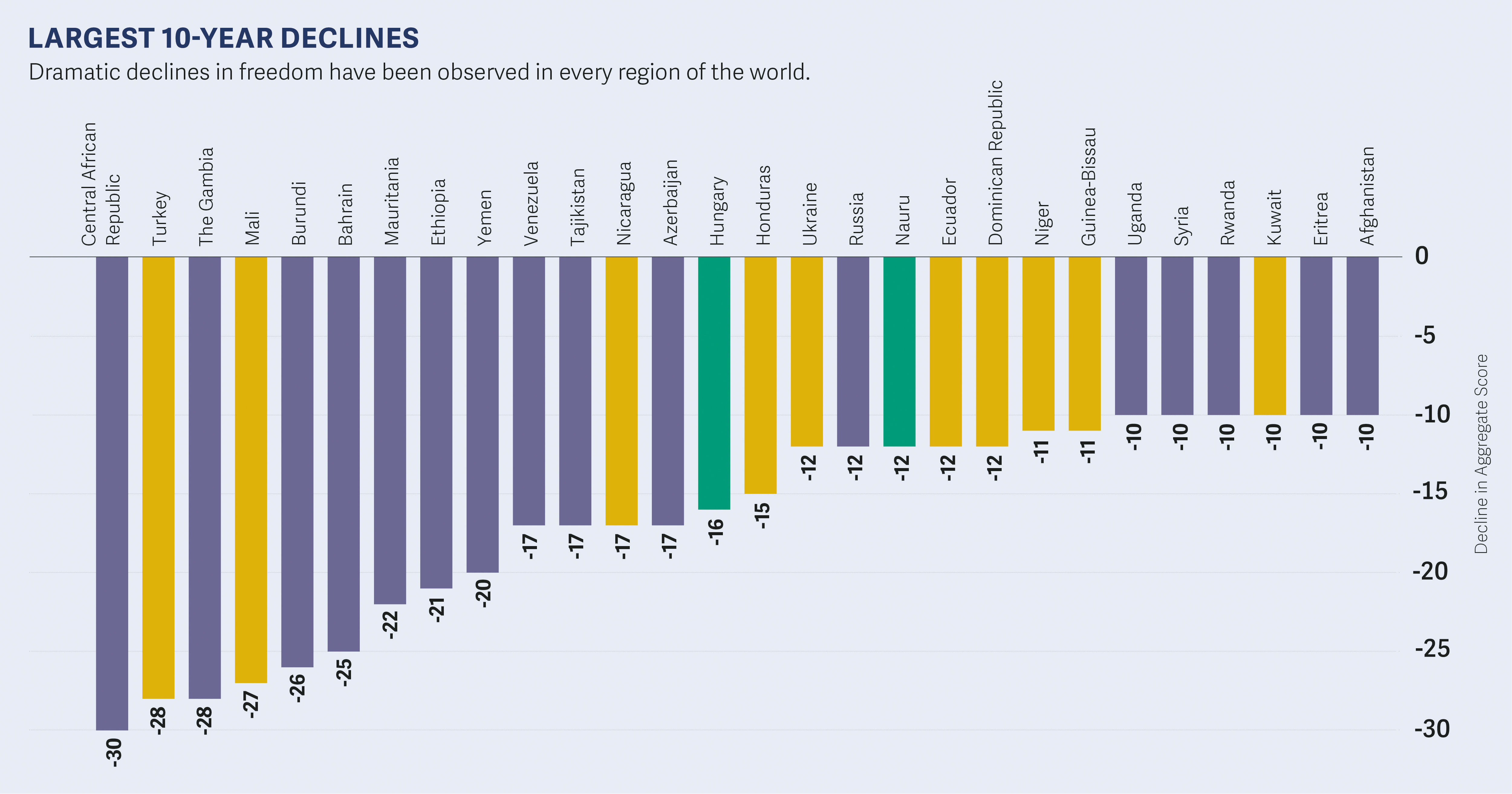
There was an improvement in 13 countries, but the gains were small and did not reflect a significant change in policy, “In Libya, for example, several news websites were unblocked, and unlike in previous years, no users were imprisoned for their online activity. In Bangladesh, there was no repetition of the government’s temporary 2015 blocking of popular apps like Facebook, WhatsApp, and Viber amid security concerns following the confirmation of death sentences against two Islamist leaders. And Uzbekistan, one of the most restrictive states assessed, improved slightly after the introduction of a new e-government platform designed to channel public grievances, which prompted greater citizen engagement.”
You can read the full report here.